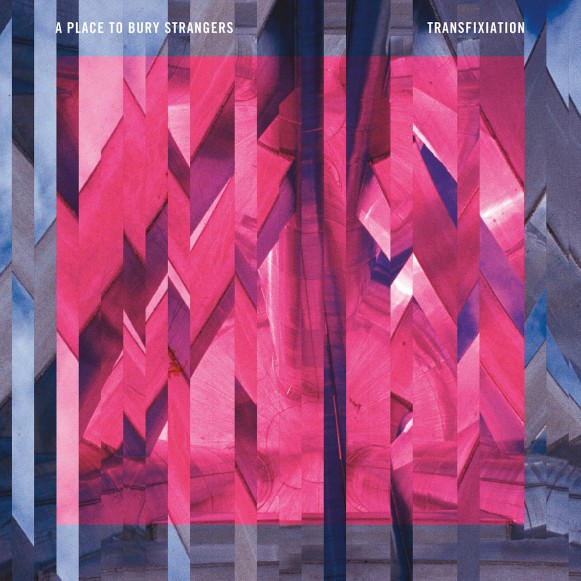A Place To Bury Strangers is a band with a reputation. A mythology has started to follow the Brooklyn trio: the custom-built pedals, the dizzyingly loud live show, the obvious late 80s/early 90s reference points. The opening tracks of their fourth full length, Transfixiation, however, do not appear to fit with these preconceived impressions.
Whereas the opening tracks of their first three albums went for immediate impact, Transfixiation‘s ‘Supermaster’ is a slow creeping, down tempo song dominated by Oliver Ackermann’s vocals and curiously light on the guitars. It’s not really until tremolo laden third track, ‘Love High’ that the band starts to feel familiar. But once we’ve gotten into familiar territory, it’s clear that what’s at fault is not the songs, but the recording and mixing.
It’s simply that, for all their DIY credits, A Place To Bury Strangers are not a band best served by lo-fi production; this is not a band that needs more fuzz. Live it doesn’t really matter – the volume is beyond deafening to nausea-inducing. It’s an experience beyond the music that makes up for the loss of nuance. But on most days a person is not going to try to recreate that experience on their stereo or headphones (blocking out noise from neighbours or public transportation notwithstanding). So if you’re going to obliterate that nuance live, and not try to create it all on the record, then what is the point of designing and building your own effects pedals that you’re just going to blot out?
There are other moments of immediate impact: ‘Deeper’ is a droning, sludgy track that rolls in and bursts apart at the end – a trick they’ve used before but whose effect always sticks. And ‘Now It’s Over’ is a prime example of their ability to write a gloomy, noisy pop song, one that is multi-dimensional, that allows a little bit of treble to peek through all the fuzz.
It’s certainly not that they’ve lost their way. The scrapes and shards of guitars that are lost on the first and second and maybe even third listen, eventually emerge as though they’ve been laying dormant there all along. There’s even something truly encouraging about the overt optimism of ‘We’ve Come So Far’, not an emotion necessarily associated with APTBS. In spite of that message, it’s still easiest to look back to their self-titled first album. The hallmarks of what’s appealing about the band are all here, but it’s not a sign of progress.
<div class="fb-comments" data-href="http://thequietus.com/articles/17211-a-place-to-bury-strangers-transfixiation-review” data-width="550">



